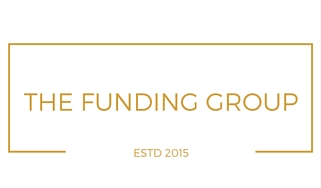A few of us start the homeownership journey by figuring out how much house we can afford. There’s a better question that you can ask yourself. Instead, ask yourself the question “What am I looking for in a future home?”
Your answer to this question will determine why you are buying a house.
You can achieve many of your long-term and short-term goals by owning your home. It can help you access good schools, parks, and other amenities if children are in your future. It can help you to build wealth if you have dreams of a trip around the world or a fully-funded retirement.
After you have established your goals and decided to use homeownership as a way to grow your wealth, it is time to start looking at the costs involved in buying and maintaining property. Also, consider how much you can spend on a home.
What size house can you afford?
It’s crucial to have a realistic budget so that you can afford to buy the home you want. Be careful and don’t overbuy.
A good understanding of your monthly debts is essential. To be eligible for most purchases loans, you will need a 43% debt-to-income ratio. The debt-to-income ratio can be calculated by adding all monthly debt payments to your gross monthly income.
This includes your new mortgage payment and taxes. It also includes your insurance, taxes, and homeowner association (HOA) fees. Include student loans, car payments, and other debts.
This ratio is crucial because it allows lenders to predict how you will manage your monthly mortgage payments.
A home affordability calculator might be a good tool to get an idea of your budget as you look for a home.
This tool will help you find the best price range for your income, downpayment savings, and other factors.
This is not all. You should also consider other expenses such as gas, groceries, and monthly subscriptions to ensure you are in a financial position. You don’t need to have a budget every month and want help in creating one .
You should also ensure that you have enough money to cover unexpected expenses like the cost of a new car or travel costs. You should consider setting aside money each month to pay for maintenance and repairs. This will ensure you are prepared in the event of a hailstorm, or if you need to buy a new mower.
Knowing your future budget will help you to determine what kind of mortgage payment you are able to afford.
Keep in mind that closing on a house will result in you paying one-time fees. You’ll need cash to cover these costs. These fees will cover your appraisal and inspection, title insurance, lender fees, as well as any state or county fees.
Here’s an added bonus: homeownership could offer tax deductions that you were not eligible for before. Talk to a tax professional about how these potential savings could impact your budget.
If you look at the big picture, it’s a great time for homeowners to purchase a home due to historically low interest rates and the possibility of building wealth through homeownership. It is important to adapt this to your particular situation.
Once you have completed the above steps you are ready to meet with a loan officer and narrow down your price range to start shopping.
Get a pre-approval for a mortgage to validate your home’s value
To get the best price range and understand the true cost of closing, you should consider getting pre-approved for a mortgage prior to buying a house. Pre-approval gives sellers and buyers the assurance that you can afford a house. This makes you more competitive in your offers.
You can also see a breakdown of the price so that you can calculate your monthly payment, as well as any additional costs like taxes and homeowner’s insurance.
Re-approvals provide buyers with an affirmation that is based on thorough financial analysis. A real underwriter will review your application. You’ll need to provide financial documentation. Once all of that is verified, we’ll issue you a commitment letter.
You can confidently purchase a home knowing you have your pre-approval in place and an understanding of your reasons for buying it.

